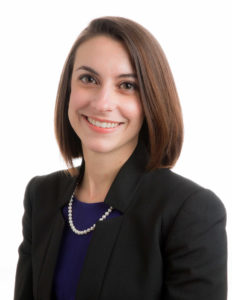HSC researcher, collaborators help homeless mothers and children find their road back
Hundreds of thousands of families across the U.S. struggle with homelessness each year. Living on the streets, in cars, at shelters or temporarily bunking up with others poses many risks and challenges, greatly intensified this year by the COVID-19 pandemic.
Erika Thompson, PhD, Assistant Professor at the HSC School of Public Health and Maternal and Child Health MPH Program Director, is a partner with the Center for Transforming Lives (CTL), a local agency providing homeless services, early childhood development, childcare, economic stability programs and other resources to those in need. CTL has stepped up in 2020 to respond to the added burdens on mothers and children during the pandemic.
Dr. Thompson is an epidemiologist and community-based researcher, focused on finding public health solutions to the challenges faced by women and children. She recently spoke at a CTL Virtual Lecture Series event about her work, community collaborations and how COVID has made many of the challenges even more difficult for these families. Her presentation, on “Exploring the Journey for Homeless Women,” can be found on YouTube.
“COVID has had a profound effect on all the population, in terms of both mental and physical health and well-being,” Dr. Thompson said. “It’s a difficult time for everyone, while for mothers experiencing homelessness, the burdens are greatly intensified.”
“The negative stresses of homelessness impact both body and mind, often with long-lasting health consequences for the mother and child, even as children move into adolescence and adulthood. Some kids are more resilient and able to overcome certain stressors, but for many, the experience can impact mental and physical health throughout their lifetime,” she explained.
Pre-COVID, Dr. Thompson led research teams, funded in part by United Way of Tarrant County, to meet women where they were in their journey, spending time on the streets and in shelters to conduct personal interviews and learn where they needed help in navigating the healthcare system, securing housing and childcare services, connecting with workforce training and employment assistance, and accessing community resources for food, daily living supplies and other support.
“It takes a village to serve this population,” Dr. Thompson said. “The work of so many in the community – agencies, volunteers, donors, local advocacy efforts, the commitment to women’s and children’s health – is needed even more now during COVID-19.”
CTL reports that more than 7,000 children under age 6 will experience homelessness in Tarrant County this year, and national data show that the number homeless mothers in need of assistance has grown considerably during the pandemic. Job losses in a destabilized economy, potential for evictions, family struggles and other factors are severely challenging this already overburdened population.
“2.65 million women have left the U.S. workforce since February, with many facing difficult choices in how to find their way right now. The pressures are enormous,” Dr. Thompson said. “It’s hard to be solely responsible for the care and well-being of your children in an environment of upheaval where you yourself don’t feel safe, certain or secure.”
In many ways, Dr. Thompson said, systems and shelters are more apt to focus on the adult male, typically seen as most representative of the homeless population. Women and children tend to be overlooked in the traditional view of homeless individuals, although research reflects that up to 84% of families experiencing homelessness are those led by the mother.
Safety is a big issue for these women, as is the hardship of what Dr. Thompson calls “public parenting.”
“Some moms are living and parenting in their cars, in crowded motels or temporary-stay hotel rooms, in other people’s homes for a while, or in shelters with many other families,” she said. “Parenting under unstable living circumstances strips away privacy and adds even more pressure to all that the family has been through.”
Many women go through multiple living situations in their journey, sometimes transitioning 4-5 times in a year.
There is also a lot of fear among these moms – fear for safety, of being judged, of their kids being exposed to situations they shouldn’t be, of having their children taken away. For some of these women, the best choice seems to be living in their cars.
The experience is characterized by transitions and instability.
In collaboration with local agencies like CTL and others, researchers like Dr. Thompson work to find solutions for these families, from food, housing, transportation and cash assistance programs to child care services, technology and Wi-Fi connections for school-age children, health provider networks, social and mental health services, vocational programs and more.
“The full spectrum involves recognizing the complete family unit and the complexity of their needs. Many of these families are having to navigate each of these processes separately to just meet the basics of daily living,” Dr. Thompson said. “The more we learn about their journey and where they need the most help, the better we can serve them.”
Partnerships with different support organizations and an opportunity to work directly in the community are most important for a public health researcher helping to drive change, she said.
“There are so many mothers doing the very best they can to succeed in this community, to build lives that are independent, where they can fulfill their dreams,” noted Carol Klocek, CTL Executive Director and CEO.
“We’ve seen some amazing women come through this journey into education programs, living wage jobs, places to raise their families and rebuild their lives,” Klocek said. “Our collaboration with Dr. Thompson, the HSC School of Public Health and other dedicated community partners is truly making a difference for these families.”




![Uyen Sa Nguyen Scaled[58]](https://www.unthsc.edu/newsroom/wp-content/uploads/sites/16/Uyen-Sa-Nguyen-scaled58-145x175.jpg)

Social media